Indian Auto Component Industry To Grow By Upto 10% In FY2026 Says ICRA
- By MT Bureau
- February 20, 2025
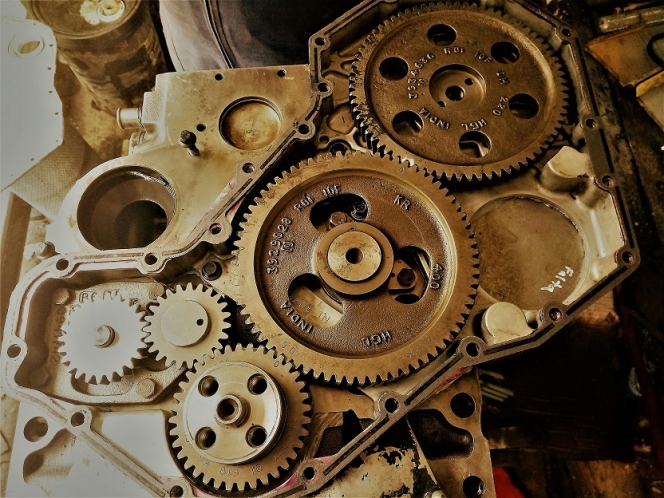
The Indian automotive components industry, which is a critical partner for the domestic as well as the global automotive industry is expected to grow by 8-10 percent in FY2026 according to ICRA.
The estimates are based on the company’s assessment of about 46 auto ancillaries with aggregate annual revenue of over INR 3,000 billion in FY2024, which accounted for about 50 percent of the industry.
For FY2025, the industry is expected to report 7-9 percent growth, with operating margines to be around 11-12 percent for FY2025 and FY2026. The confidence comes on the back of the industry benefitting from operating leverage, higher content per vehicle and value addition while remaining vulnerable to any significant unfavourable movements in commodity prices and foreign exchange rates.
The study stated that the ‘disruption along the Red Sea route has resulted in a surge in ocean freight rates by 2-3 times in CY2024 compared to CY2023. Any further sharp and sustained increase in ocean freight rates could also have a bearing on margins for auto component suppliers having significant exports/imports.’
In FY2026, ICRA estimates that the auto component sector will pump in INR 250-350 billion investment towards enhancing capacity, localisation/capability development and new technologies (including EVs) among others.
The big opportunity in EV segment can be seen on the fact that at present only 30-40 percent of the supply chain in India is localised, which includes traction motors, control units and BMS. On the other hand, EV battery cells that make up for almost 30-40 percent of an EV cost continues to be imported.
Vinutaa S, Vice President and Sector Head – Corporate Ratings, ICRA, said: "The domestic auto component industry is in a transitory phase with the automotive players increasingly focusing on sustainability, innovation and global competitiveness. Demand from domestic original equipment manufacturers (OEMs), which constitutes over half of the industry revenues, is estimated to grow by 7-9 percent in FY2025 and 8-10 percent in FY2026. Part of the growth would stem from premiumisation of components and higher value addition. Growth in replacement demand is pegged at 5-7 percent in FY2025 and 7-9 percent in FY2026, driven by increase in vehicle parc, higher average age of vehicles/used car purchases, preventive maintenance and growth in organised spare parts, among other reasons.”
“Exports, which account for close to 30 percent of the industry’s revenues, are likely to be impacted by subdued vehicle registration growth in the target markets. However, factors like rising supplies to new platforms because of vendor diversification initiatives by global OEMs/Tier-Is and higher value addition, partly stemming from increase in outsourcing, augur well for Indian auto component suppliers.”
Metal Castings & Forgings
ICRA finds that Indian component suppliers in the metal castings and forgings also have a bigger opportunity on the back of plants closure in European Union on the back of viability issues.
The report stated that ‘ageing of vehicles and sale of more used vehicles in global markets would aid in exports for the replacement segment. The impact of any import tariffs on Indian auto component exports remains monitorable.’
In the medium-to-long term, premiumisation, localisation, EVs and stringent regulatory norms continue to offer tailwind for the Indian automotive industry.
“ICRA’s interaction with large auto component suppliers indicates that the industry is estimated to spend INR 150-200 billion in FY2025 and another INR 250-300 billion in FY2026. The incremental investments would be made towards new products, product development for committed platforms and development of advanced technology and EV components, apart from capex for capacity enhancements and upcoming regulatory changes. R&D, though, is still at an average of 1-3 percent of operating income, significantly lower than the global counterparts. ICRA expects auto ancillaries’ capex to hover around 7-8 percent of operating income over the medium term, with the PLI scheme also contributing to incremental capex towards advanced technology and EV components,” he concluded.
Representational Image courtesy: Ronaldo Galeano/Pexels
Bharat Forge Subsidiary JS Auto Cast Secures INR 3 Billion From Premji Invest
- By MT Bureau
- February 02, 2026
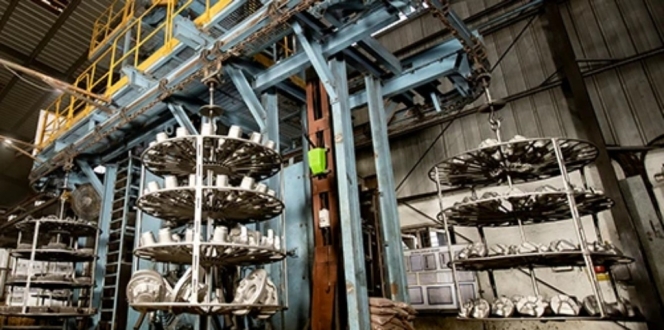
JS Auto Cast Foundry India (JSA), a subsidiary of Bharat Forge, has raised INR 3 billion crore in equity from Premji Invest (PI). Following the primary infusion of capital, Premji Invest will hold a 23 percent stake in the company on a fully diluted basis.
JSA is a supplier of ferrous castings for the industrial and automotive sectors. The company intends to use the capital to expand casting capacity, invest in medium casting capabilities, and pursue industry consolidation through acquisitions.
Since its acquisition by Bharat Forge in 2022, JSA has reported growth in revenue, exports, and profitability with a Compound Annual Growth Rate (CAGR) of 17 percent, 24 percent and 25 percent respectively.
Amit Kalyani, Vice Chairman & Joint Managing Director, Bharat Forge, said, “Since 2022 when we acquired JSA, the company has delivered excellent financial performance with topline, exports and profitability growing at a CAGR of 17 percent, 24 percent and 25 percent respectively, while enhancing its product mix and customer base. We are delighted to partner with Premji Invest (PI), a renowned and highly respected investor, in the next phase of JSA’s growth journey.”
The investment aligns with Premji Invest’s strategy of collaborating with engineering and manufacturing conglomerates on growth and consolidation initiatives.
Manoj Jaiswal, Partner, Premji Invest, said, “We are excited to partner with Bharat Forge, a premier engineering and manufacturing conglomerate in the country. Collaborating with leading conglomerates on their growth and consolidation journey is one of our strategic pillars. Through our investment in JSA, we look forward to jointly building a leading ferrous casting platform in the country.”
- Schaeffler India
- Symposium on International Automotive Technology
- SIAT 2026
- Deepak Kasturi
- Madhurisha VIppatoori
- Harsha Kadam
- Viswanathan Sambasivam
- Omkar Kulkarni
Schaeffler India Showcases Next-Gen Product Portfolio At SIAT 2026
- By MT Bureau
- January 28, 2026
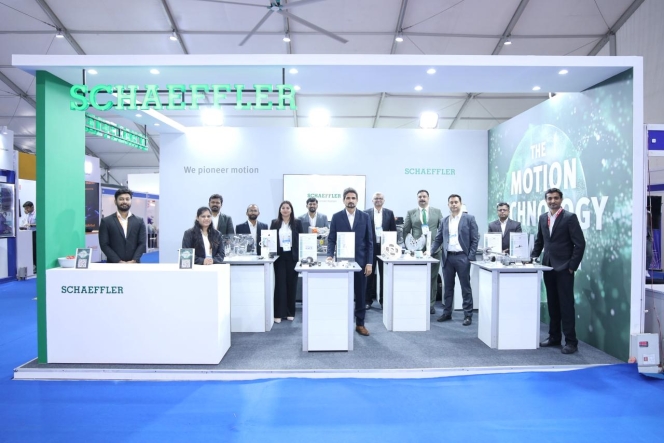
Tier 1 supplier Schaeffler India is showcasing a range of motion technologies at the Symposium on International Automotive Technology (SIAT) 2026. The company's exhibit at Hall Zone D includes electrification solutions such as drives, motors and modules, alongside powertrain systems for internal combustion engines and hybrid vehicles.
The portfolio on display features chassis components, sensors, fuel delivery modules, and bearings designed to reduce friction in vehicles. The company is highlighting its local engineering capabilities and its work with manufacturers to develop mobility solutions within India.
Company executives are participating in the symposium's technical programme. Madhurisha Vippatoori, Chief Technical Officer, is chairing the Testing and Evaluation track. Deepak Kasturi, Head of Innovation India, is delivering a keynote address regarding Euro 7 standards and real-time emissions monitoring.
The company stated that its presence at the event reflects its focus on engineering innovation, energy efficiency and collaborative development with automotive customers and academia.
Harsha Kadam, CEO & MD, Schaeffler India, said, “As a leading mobility solutions provider in India, we at Schaeffler are proud to be associated with all the leading automotive customers in shaping the future of mobility. We are equally committed to supporting our customers across various types of powertrains that will support cleaner, electrified, and intelligent mobility. Together, we are shaping a more secure, sustainable, and future-ready India.”
Viswanathan Sambasivam, Division Head - Powertrain & Chassis India, said, “SIAT provides an ideal platform to demonstrate how we are shaping mobility for India. Our focus is on co-engineering with OEMs, accelerating technology transfer, and strengthening local value creation. The solutions we are bringing this year represent the next step in advancing clean, safe, and smarter mobility.”
Omkar Kulkarni, Division Head - E-Mobility India, said, “India is one of our most important engineering hubs. Our teams here are working closely with customers to design for India, build in India, and innovate for India. The technologies displayed at SIAT underline our ability to combine global expertise with local development capabilities.”
Indian Auto Component Industry Set To Showcase Its Prowess At ACMA Automechanika New Delhi 2026
- By MT Bureau
- January 28, 2026
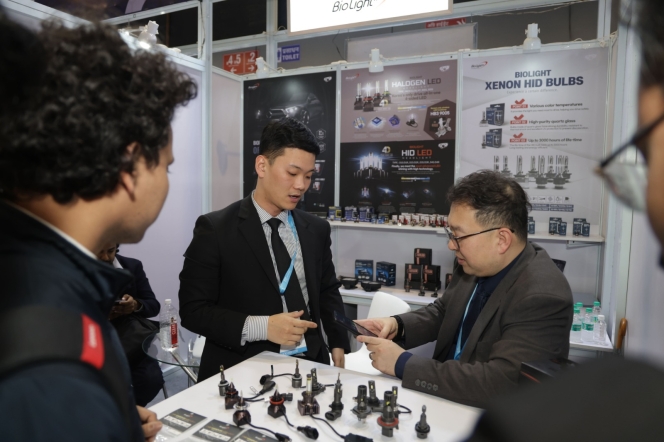
The Indian automotive component industry was valued at USD 80.2 billion in FY2025, with the aftermarket segment contributing USD 11.8 billion. Data from the Automotive Component Manufacturers Association of India (ACMA) indicates the sector grew by 6.8 percent to reach USD 41.2 billion in the first half of FY2026. Industry projections suggest the component market will reach between USD 111 billion and USD 200 billion by 2030.
Against this growth, the ACMA Automechanika New Delhi 2026 trade fair will take place from 5 to 7 February 2026 at Yashobhoomi, New Delhi. Organised by Messe Frankfurt Trade Fairs India and ACMA, the event will host more than 870 exhibitors. The fair serves as a platform for manufacturers, distributors and service providers to showcase innovations in spare parts, electronics, diagnostics and workshop equipment.
The exhibition will feature participation from 20 countries, including Germany, Japan, Korea and the USA. Dedicated pavilions will highlight technologies from nations such as China, Italy and Taiwan. The event focuses on electrification, alternative fuels and digital authentication. Exhibitors will display ethanol-ready components, hydrogen systems and electric vehicle charging solutions.
Raj Manek, Executive Director and Board Member of Messe Frankfurt Asia Holdings, said, “As India prioritises quality-led development across sectors, ACMA Automechanika New Delhi 2026 will showcase how the auto components and aftermarket industry is advancing in sync with global trends. The show will unite visitors and exhibitors in a massive international gathering, converging cutting-edge innovations, sustainable component solutions and clean-fuel ecosystems. Global participants are increasingly drawn to India's pivotal role in this transition, with organisations showing strong enthusiasm for tech-driven solutions to combat climate change and build a thriving and a cleaner future”.
Vinnie Mehta, Director General of ACMA, added, "India’s automotive aftermarket is moving towards a more structured, quality-driven and globally aligned future. The auto component industry grew by 6.8 percent to USD 41.2 billion in the first half of FY26, supported by stable domestic demand, a resilient aftermarket and sustained investments in capacity expansion, localisation and technology upgradation. ACMA Automechanika New Delhi provides an important platform for industry stakeholders to engage with emerging technologies, regulatory developments and global market opportunities”.
Sona Comstar Reports 39% Revenue Growth In Q3 FY2026
- By MT Bureau
- January 23, 2026
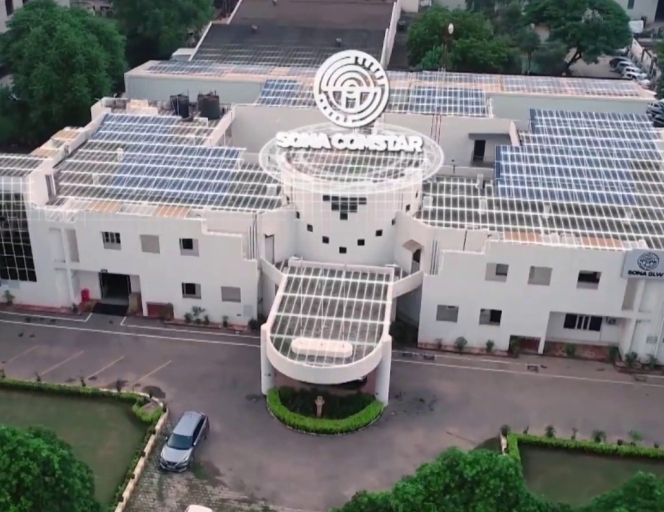
Sona BLW Precision Forgings (Sona Comstar) has announced its financial results for Q3 FY2026, reported revenue of INR 12.09 billion, a 39 percent increase YoY.
The company’s EBITDA grew by 25 percent to INR 3.2 billion with a margin of 25.2 percent, while net profit rose by 20 percent to INR 1.8 billion. Revenue from Battery Electric Vehicles (BEV) represented 38 percent of total turnover.
In the first 9-months of FY2026, the company secured six new programmes, bringing the total to 65 across 33 different customers. Additionally, Sona Comstar was awarded a programme from a new customer to supply hydraulic motor controller.
Vivek Vikram Singh, MD & Group CEO, Sona Comstar, said, “We achieved our highest-ever quarterly revenue, EBITDA, and adjusted net profit in Q3 FY2026. Our revenue grew strongly by 39 percent YoY, primarily driven by the expansion of our electric vehicle traction motor and railway business in India. BEV revenue share improved meaningfully to 38 percent in Q3 from 32 percent in Q2FY2026 and represents our second-best quarter till date in terms of absolute BEV revenue and share. We have commercialised a new product in this quarter, the hydraulic motor controller, leveraging our strengths in motors and controllers to develop the solution for a new application outside the current product portfolio. We continue to add new EV customers and win new EV programs from our existing EV customers. Moreover, we commenced sample production of in-cabin radar sensors in our new SMT line at Chennai facility in this quarter, making us one of the few automotive radar manufacturers in India with local SMT manufacturing capability.”







Comments (0)
ADD COMMENT